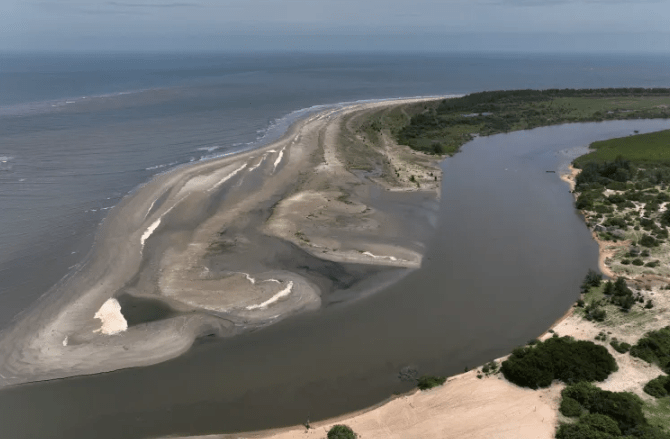Almost six billion tonnes of sand and other sediment are extracted from the world’s seas and oceans every year on average, according to the United Nations.
The UN Environment Programme (UNEP) warned on Tuesday of the devastating toll on biodiversity and coastal communities, adding that the scale of dredging was growing, with dire consequences.
“The scale of environmental impacts of shallow sea mining activities and dredging is alarming,” said Pascal Peduzzi, who heads UNEP’s analytics centre GRID-Geneva.
He pointed to the effects on biodiversity, as well as on water turbidity, and noise effects on marine mammals.
The UNEP launched a global data platform on sediment extraction in marine environments, Marine Sand Watch, which uses artificial intelligence to track and monitor dredging activities of sand, clay, silt, gravel and rock in the world’s marine environment.
It uses so-called Automatic Identification System (AIS) signals for ships combined with artificial intelligence to identify the operations of dredging vessels, including in hotspots like the North Sea and the East Coast of the United States.
The signals emitted by the vessels allow “access to the movements of every ship on the planet”, Peduzzi was quoted as saying by AFP news agency.
“This represents six billion tonnes on average every year, or the equivalent of more than one million dump trucks every day,” Peduzzi said.
He pointed out that “our entire society depends on sand as a construction material”. At the same time, sand plays a vital environmental role, including protecting coastal communities from rising sea levels.
Data analysed for the years 2012 to 2019 shows the scale of dredging is growing and that the world is approaching the natural replenishment rate of 10 to 16 billion tonnes of sediment washed into its oceans each year.
This is especially concerning for regions where dredging is more intense and extraction already substantially surpasses the sediment budget from land to sea, said the report.
Source: Aljazeera

